News
-
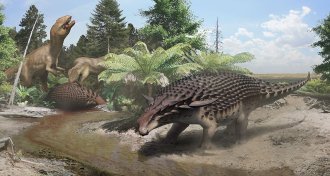 Paleontology
PaleontologyGiant armored dinosaur may have cloaked itself in camouflage
An armored dinosaur the size of a Honda Civic also wore countershading camouflage, a chemical analysis of its skin suggests.
-
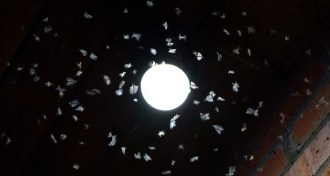 Life
LifeLight pollution can foil plant-insect hookups, and not just at night
Upsetting nocturnal pollinators has daylight after-effects for Swiss meadow flowers.
By Susan Milius -
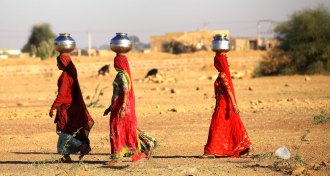 Climate
ClimateSouth Asia could face deadly heat and humidity by the end of this century
If climate change is left unchecked, simulations show extreme heat waves in densely populated agricultural regions of India and Pakistan.
-
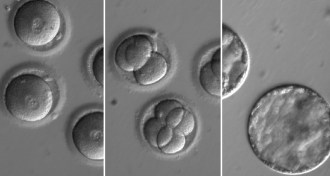 Genetics
GeneticsGene editing of human embryos gets rid of a mutation that causes heart failure
Gene editing of human embryos can efficiently repair a gene defect without making new mistakes.
-
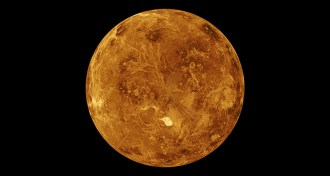 Planetary Science
Planetary ScienceEvidence mounts for an ocean on early Venus
Not long after its birth, Venus may have rocked a water ocean, new simulations suggest.
-
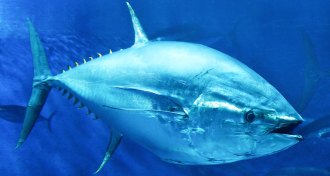 Animals
AnimalsNewly discovered lymph hydraulics give tunas their fancy moves
There’s still some anatomy to discover in fishes as familiar as bluefin and yellowfin tunas.
By Susan Milius -
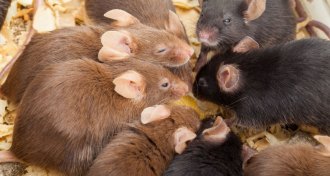 Neuroscience
NeuroscienceMice with a mutation linked to autism affect their littermates’ behavior
Genetically normal littermates of mutated mice behave strangely, suggesting that the social environment plays a big role in behavior.
-
 Space
SpacePotential ingredient for alien life found on Titan
The atmosphere and oceans of Saturn’s moon Titan contain vinyl cyanide, a compound predicted to form cell-like bubbles.
-
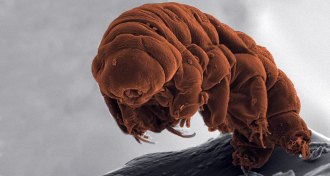 Genetics
GeneticsTardigrades aren’t champion gene swappers after all
Genetic studies reveal more secrets of the bizarre creatures known as tardigrades.
-
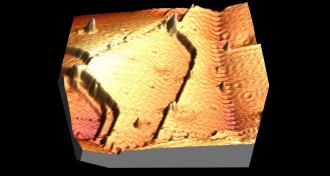 Materials Science
Materials ScienceThe thinnest films of copper look flat, but they aren’t
It turns out that thin films of copper don’t lay flat, a discovery that has implications for computers and handheld electronics.
-
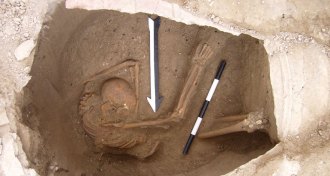 Anthropology
AnthropologyAncient DNA offers clues to the Canaanites’ fate
DNA is painting a more detailed portrait of the ancient Canaanites, who have largely been studied through the secondhand accounts of their contemporaries.
-
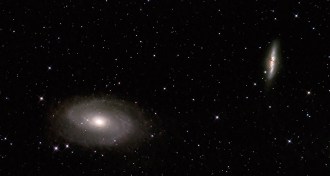 Astronomy
AstronomyHalf of the Milky Way comes from other galaxies
A galaxy may swipe up to half of its atoms from other galaxies, making the Milky Way mostly extragalactic stuff, new simulations suggest.